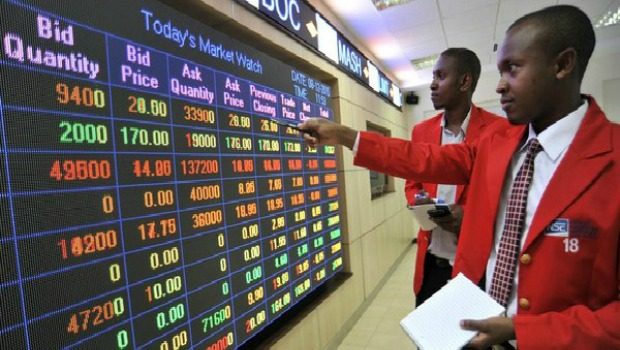African IPOs? Changes at the Dar es Salaam Stock Exchange Benefit Startups and Investors

Introduction: Going Public at Home or Abroad?
Can African entrepreneurs with dynamite companies hope to have initial public offerings (IPOs) in their local stock markets, like their American and European counterparts do? Or are they fated to raise capital in stock markets abroad? These questions may very well decide the future of African business, for better or worse. We provide some answers here.
In this post we will examine the roles of the Dar es Salam Stock Exchange (DSE) in Tanzania, noting that the conditions of raising stock market capital differ in every country in which there is a stock exchange. This examination is self-contained, but also serves as an example of how African stock exchanges generally work for and against both entrepreneurs seeking to raise capital in IPOs and investors seeking return on investment (ROI).
The picture of African stock exchanges that emerges is one of possibilities and problems. Somalia’s recent efforts to establish a stock exchange go to show that there is interest in creating local versions of these opportunity machines, full of possibilities. The DSE, while more established, offers somewhat of a contrast, showing how local stock exchanges can also create as many or more problems as they solve. At least until very recently.
The Dar es Salaam Stock Exchange: An Overview
The DSE is a relatively new stock exchange, incorporated in 1996 and with trading commencing in 1998. In some twenty years, it has grown from two stocks listed in its first years to twenty-seven now, not a huge number by any means and indicative of its clubby mindset of big companies listing to raise more capital, instead of encouraging small capitalization companies to carry out IPOs. But, as we will see, this situation may be changing for the benefit of smaller businesses, investors and the exchange.
It should be noted that the DSE is well-connected regionally, with close ties to the Nairobi Securities Exchange in Kenya and the Uganda Securities Exchange in Uganda. There are even plans to integrate the three to form a single East African stock market, though discussions are in their infancy. The DSE is a member of the African Stock Exchanges Association and the World Federation of Exchanges, and its activities are monitored by the Capital Markets and Securities Authority. As of 2016, the DSE is itself a publicly listed company.
In sum, the DSE tries to fulfil four main roles as a stock exchange. Whether it does so as well as other stock exchanges is up for debate. The four roles are as follows:
- Facilitate Capital Raising: The DSE provides a platform for companies to issue new shares and bonds to the public.
- Provide a Trading Platform: The DSE acts as a marketplace where traders and investors can buy and sell securities like shares and bonds at the best available prices.
- Investor Protection: The DSE has rules and regulations for the protection of investors and to promote fair and transparent trading. To this end, it has a database of information about listed companies so that investors can make informed decisions.
- Economic Growth: In fulfilling the previous three roles, the DSE contributes to the economic development of Tanzania as a whole.
DSE Mobile Trading, a cell phone app for stock trading on the exchange, was launched in 2015 for broker-free trades online. Given that only 400,000 Tanzanians currently participate in the DSE, in a country of 65 million, this app shows that the DSE is making a conscious effort to expand the market for local stocks, at least domestically. The DSE’s efforts to expand its trading platform on the continental or global levels leave much to be desired.
What’s Working and What’s Not at the DSE
For a stock market to live up to its name, two obvious things need to be in place: there needs to be stocks to buy and sell, and there needs to be a market to buy and sell in. The Dar es Salaam Stock exchange has succeeded, in its limited way, to put up some stocks to buy and sell, but it has proven less successful in creating a market for those stocks.
This dearth in market creation is not entirely its fault– the local population can often hardly think of savings let alone investing or trading. In Tanzania, sports betting is more popular than stock market participation. But by listing attractive fast-growing startups rather than dissuading slow-moving monoliths, the stock exchange could bring in new interest from the current and next generations of locals as well as foreigners. In this, the DSE is beginning to open its eyes.
The DSE has made advances in allowing investors to put their money in big Tanzanian companies seeking to raise more capital. This gives exposure to African markets to global investors and benefits the listed companies financially. Twenty-seven companies is not a large portfolio of stocks to choose from, but it is much better than none. Now imagine what could happen if more African startups listed on the DSE.
Unfortunately, the DSE has been less welcoming to entrepreneurs of smaller companies seeking to raise capital than to the CEOs of large companies seeking to do the same. The reasons for this exclusion remain unclear, but it is clear that there is no shortage of Tanzanian startups looking to raise capital through an IPO. Fortunately for the Tanzanian startup community, the DSE may be changing for their benefit.
Aside from individual investors, local or foreign, who can invest in DSE-listed companies, there are institutional investors that can be major market participants. In the past few years, there has been a major upsurge in trading volumes at the DSE, which can be attributed to enhanced efforts by capital market players to attract institutional investors such as pension funds, mutual funds, and insurance companies. These institutional investors could be led to invest in startups seeking IPOs on the DSE, to which we now turn.
A New Hope, A New Deal: The Tanzanian Startup Association and the DSE
Just recently, the Tanzania Startup Association (TSA) and the Dar es Salaam Stock Exchange signed an Memorandum of Understanding which is intended to, according to their X post, “open up public listing pathways for eligible startups and SMEs, marking a major step forward in building a connected capital market.” This Memorandum could mark the start of a bold new era for entrepreneurs and investors in Tanzania and Africa.
The partnership between the TSA and the DSE “is about more than just listing, it’s about strengthening the exit infrastructure that investors, DFIs, and fund managers need to confidently back early-stage ventures. By bridging the gap between venture financing and public markets, we’re creating a pipeline that leads from startup growth to scale to successful exits.” This means more African startups can have IPOs locally and not go abroad to raise capital, solving the problem we established at the outset of this post.
The TSA and DSE are promising “strategic alignment with banks, DFIs, pension funds, and regulators to deepen market liquidity and match demand with investable supply… Together with our public and private partners, we look forward to continued efforts to build a clear pathway for startups to grow, investors to exit, and capital to recirculate locally.”
The benefits of this TSA-DSE partnership, if they bear fruit, are clear: smaller African companies will be able to raise capital on the stock exchange, angel investors and venture capitalists will have exits for their early-stage investments, and more Tanzanians and foreigners will be enticed to invest and trade, both individual and institutional. This improved situation would be a win-win for everyone in the local startup community and investors abroad, as even the President of Tanzania has recently acknowledged.
